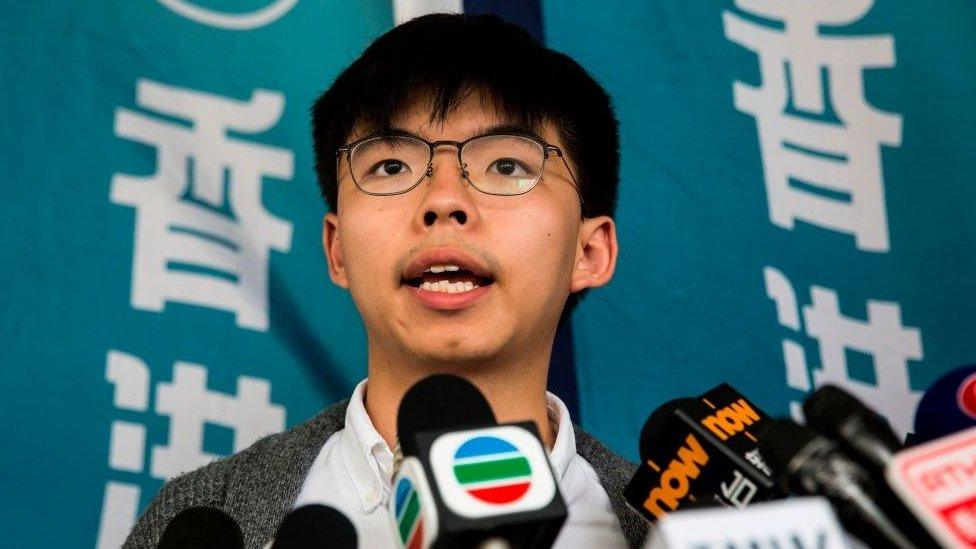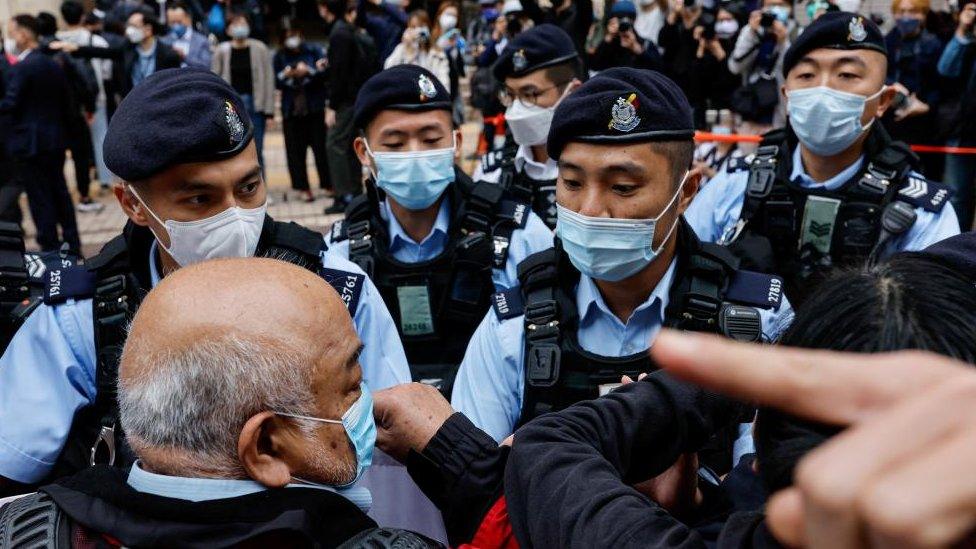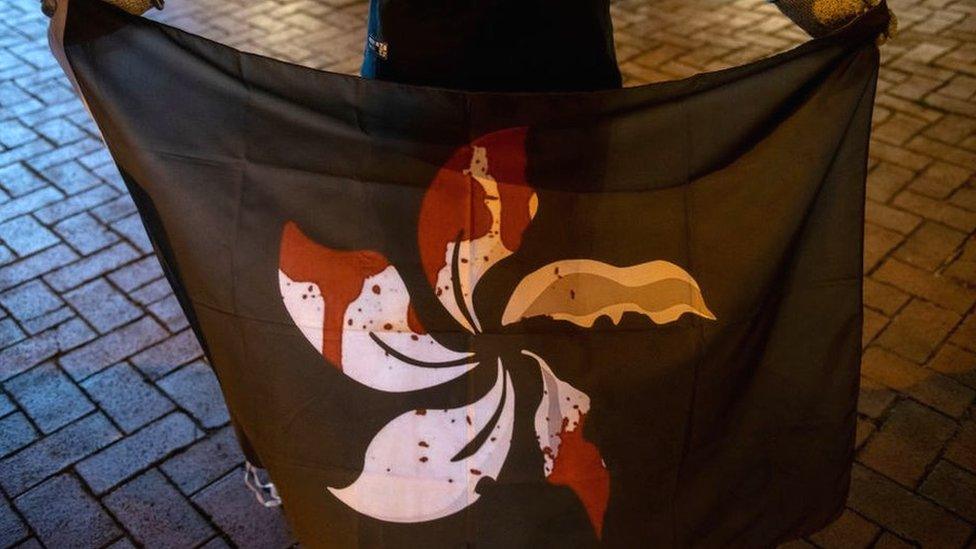Hong Kong: Trial for largest national security case begins
- Published

Joshua Wong is among the 47 people connected to the case
The trial for the largest national security case in Hong Kong has begun, with some 47 people accused of "subversion" for holding an unofficial primary election.
They include some of the city's most prominent pro-democracy figures, such as activists Joshua Wong and Benny Tai.
Most of them have been detained for the past two years on security grounds.
Critics say the city's controversial national security law is used as a tool to crush dissent.
But Chinese and Hong Kong authorities maintain it is needed to curb unrest.
On Monday long queues of supporters were seen outside the West Kowloon Magistrates' Court, where the hearing is taking place.
A small group of protesters also gathered outside the court. "Crackdown is shameless," read one banner which added: "Immediately release all political prisoners."
Prosecutors charge that the unofficial primary election - held to select candidates to contest a legislative election - was a "vicious plot" to subvert the government.
The accused had a "massive and well-organised scheme" to gain a legislative majority and cripple the government by blocking the passage of laws, with the ultimate aim of overthrowing the Beijing-appointed chief executive.
The group, which has been charged with conspiracy to commit subversion, has maintained they were merely practising normal opposition politics.

Supporters are surrounded by police outside the West Kowloon Magistrates' Courts building during a hearing for the 47 pro-democracy activists on trial.
Dubbed "The 47" by local media, those connected to the case include:
Mr Wong, 26, who has been jailed three times for his role in 2019 protests and a banned candlelight vigil
Mr Tai, 58, a former tenured professor at the University of Hong Kong
Former journalist Gwyneth Ho, 32, who covered the 2019 Yuen Long attack on protestors
Former lawmaker Claudia Mo, 66, who was an elected representative for eight years
Only 16 of them will go on trial as 31 people, including Mr Wong and Mr Tai, have pleaded guilty and will be sentenced after the trial.
The primary was held in July 2020, days after the national security law was introduced, drawing an estimated 600,000 voters.
The Chinese government soon declared the primary illegal. The September Legislative Council elections were then postponed, with authorities citing the pandemic as the reason.
The vote was eventually held after a revamp of electoral rules that meant only "patriots" - those loyal to China - were allowed to run for office. It drew Hong Kong's lowest ever voter turnout.
The trial will be overseen by three handpicked judges and not a jury, which is the practice for national security law cases. It is expected to last 90 days.
- Published19 March 2024
